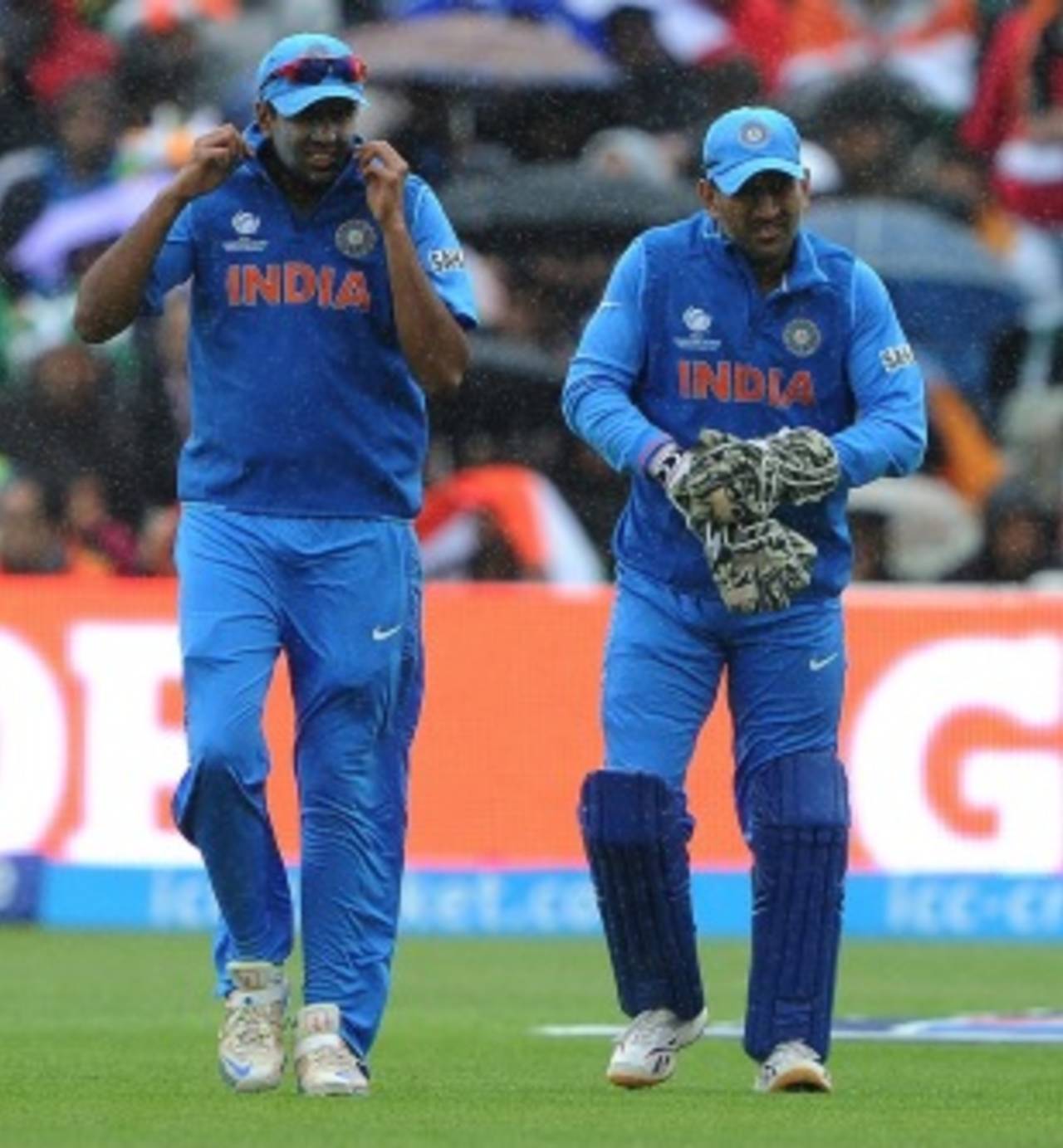The ninth team of the Champions Trophy
It's the one that all the players fear and only mathematicians love
Andrew Hughes
16-Jun-2013

"You mean to say the amount of time it takes for my clothes to dry doesn't figure in D/L calculations at all?" • AFP
I'm enjoying the Champions Trophy, but watching the narrative unwind itself, I'm reminded once again that I should pay no attention whatsoever to tournament previews. None of those glossy, guessy, soothsaying pieces gave us the full picture. They went big on England, South Africa, India and so on, but they underestimated the abilities of one of the major participants.
This isn't an eight-team affair. It's eight teams and one elementary force of nature. Amid all the wittering about Anderson, Steyn, and Jadeja's moustache, rain didn't get a mention. Naturally, the heavens have used this snub as motivation, and are now proving a few people wrong. Rain has come to the party in style, doused the barbeque, flooded the buffet, and forced everyone at the party to run inside, complaining.
Rain shared the points between Australia and New Zealand, knocked out West Indies on Friday and put in a strong performance at Edgbaston on Saturday. By my reckoning, rain is now on three points and has a chance of making the semi-finals.
Where there's moisture of course, there's mathematics. Thirty years ago, Friday's soggy affair would have ended some time in the late afternoon in a drizzly washout. A point apiece, shake hands, and let's not bother getting our hair wet. But instead, there was a fair amount of cricket and the game finished in a sort of a tie, which is a far more elegant way to demonstrate that no one has won.
And that's the awe-inspiring beauty of Duckworth-Lewis. With the application of mathematics, we can cobble together a game out of the rain-damaged bits and pieces, adding an over on here for losing the ball in the river, deducting 79 seconds there for the time it took Dale Steyn to retie his bootlaces.
Such a game isn't really about cricketers. It's the men with calculators for brains who are the stars. As the players huddled in the dressing room and the spectators sat around looking confused, the real action was happening behind the scenes. Team mathematicians were scribbling furiously on whiteboards like Russell Crowe in A Beautiful Mind, dramatically correcting one another's equations and flouncing in and out of the room to a soundtrack of thunderous classical music.
I'm not sure Keiron Pollard is a big fan of rain, or indeed of mathematics, and you have to feel sorry for him. Sportsmen are used to playing under the pressure of knowing that they've got one ball to win the match, or half an over to survive, but the calculations involved in a game of Duckworth-Lewis are so tricky to follow that the player is reduced to a hero in a Greek tragedy, a mere plaything of the God of Mathematics. He swings, he runs, he looks hopelessly at the scoreboard, but he doesn't know until he's squelched back into the pavilion whether he's an unbowed hero who has triumphed over the elements, or a soggy loser who can't count.
On the other hand, Duckworth-Lewis can offer diplomatic comfort for losing teams. On Saturday, Pakistan lost, but can point out that, technically, they scored more runs than India, which if you think about it, is a kind of victory.
Andrew Hughes is a writer currently based in England. He tweets here